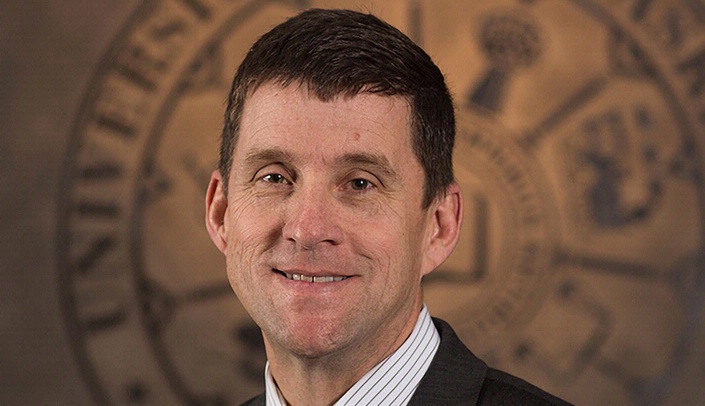The University of Nebraska will be able to continue to advance its goals for competitiveness, quality and affordability thanks to recent action by the legislature and Gov. Pete Ricketts.
The governor last week approved legislation related to the University of Nebraska’s two highest priorities with policymakers this year: a proposal to extend a state-university partnership on building renovation projects; and a proposal to improve the university’s competitive position in its president and chancellor searches. Both received strong support from state senators.
“The governor and Legislature are balancing any number of pressing issues and I am very grateful for their ongoing commitment to excellence at the University of Nebraska,” said President Hank Bounds, Ph.D. “We’re fortunate that our policymakers understand well the vital role the state’s public university plays in ensuring Nebraska’s economic competitiveness and quality of life. Their support — together with the good work of our faculty and staff — positions us well for the future.”
The budget package approved by the Legislature and signed by Gov. Ricketts continues the state’s current $11 million annual commitment to NU maintenance projects from 2020 through 2030. The funding will allow the university to issue about $200 million in debt to pursue some of its highest-priority projects. Among the renovation projects identified for funding were Wittson Hall (phase one) and the former College of Pharmacy at UNMC.
Dr. Bounds noted that the total cost to bring all university facilities to “like new” condition would exceed $1.1 billion. While maintenance challenges will remain, the state’s continued partnership in caring for valuable shared building assets will help ensure that students, faculty and staff have quality facilities in which to learn and work.
The budget also included intent language for support of fully funding the operating budget for UNMC’s Global Center for Advanced Interprofessional Learning to house its iEXCEL℠ initiative.
“We are excited by the legislature’s support of the university, particularly UNMC’s iEXCEL℠ Global Center,” said UNMC Chancellor Jeffrey P. Gold, M.D. “The use of ‘real life virtual reality scenarios’ will transform performance in career-long health care education and training, and this facility will put both UNMC and Nebraska on the cutting edge of this new training.”
The budget package also includes a 3 percent increase in the university’s base funding for 2016-17, which Dr. Bounds said will allow the university to advance a number of key priorities. He added that in the current higher education environment — in which the market for talent is increasingly competitive, the need to expand access and success for students is growing, and universities are expected to play a more prominent role in addressing the world’s most pressing challenges — continued investments will be necessary for NU to maximize its impact.
Dr. Bounds will bring a proposed 2016-17 operating budget, including proposals for salaries and other priorities, to the Board of Regents in May. The board already has approved a 2.5 percent tuition increase for the upcoming year. The board will consider the university’s 2017-19 budget request to the state in July.
NU’s other priority legislation, LB1109, will allow the university to identify a single priority finalist in president and chancellor searches who would be subject to a 30-day public vetting period prior to Board of Regents consideration of his or her appointment.
